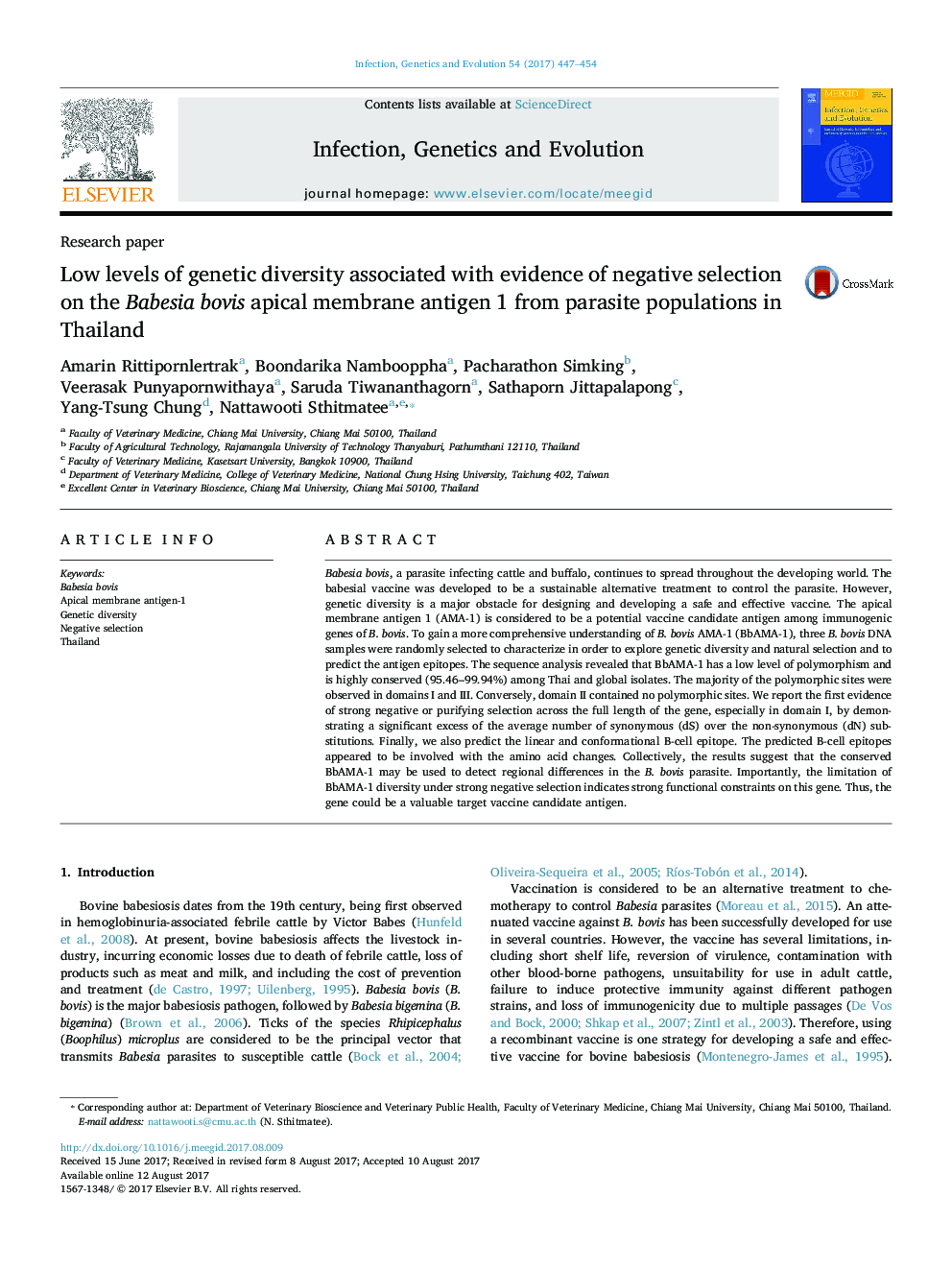| Article ID | Journal | Published Year | Pages | File Type |
|---|---|---|---|---|
| 5590564 | Infection, Genetics and Evolution | 2017 | 8 Pages |
â¢Babesia bovis apical membrane protein-1 has a low level of polymorphism and is highly conserved among global isolates.â¢The linear and conformational B cell epitopes of BbAMA-1 were predicted.â¢The majority of the polymorphic sites were observed in domains I and III, while domain II contained no polymorphic sites.â¢The first evidence of strong negative or purifying selection across the whole of gene was found, especially in domain I.
Babesia bovis, a parasite infecting cattle and buffalo, continues to spread throughout the developing world. The babesial vaccine was developed to be a sustainable alternative treatment to control the parasite. However, genetic diversity is a major obstacle for designing and developing a safe and effective vaccine. The apical membrane antigen 1 (AMA-1) is considered to be a potential vaccine candidate antigen among immunogenic genes of B. bovis. To gain a more comprehensive understanding of B. bovis AMA-1 (BbAMA-1), three B. bovis DNA samples were randomly selected to characterize in order to explore genetic diversity and natural selection and to predict the antigen epitopes. The sequence analysis revealed that BbAMA-1 has a low level of polymorphism and is highly conserved (95.46-99.94%) among Thai and global isolates. The majority of the polymorphic sites were observed in domains I and III. Conversely, domain II contained no polymorphic sites. We report the first evidence of strong negative or purifying selection across the full length of the gene, especially in domain I, by demonstrating a significant excess of the average number of synonymous (dS) over the non-synonymous (dN) substitutions. Finally, we also predict the linear and conformational B-cell epitope. The predicted B-cell epitopes appeared to be involved with the amino acid changes. Collectively, the results suggest that the conserved BbAMA-1 may be used to detect regional differences in the B. bovis parasite. Importantly, the limitation of BbAMA-1 diversity under strong negative selection indicates strong functional constraints on this gene. Thus, the gene could be a valuable target vaccine candidate antigen.
